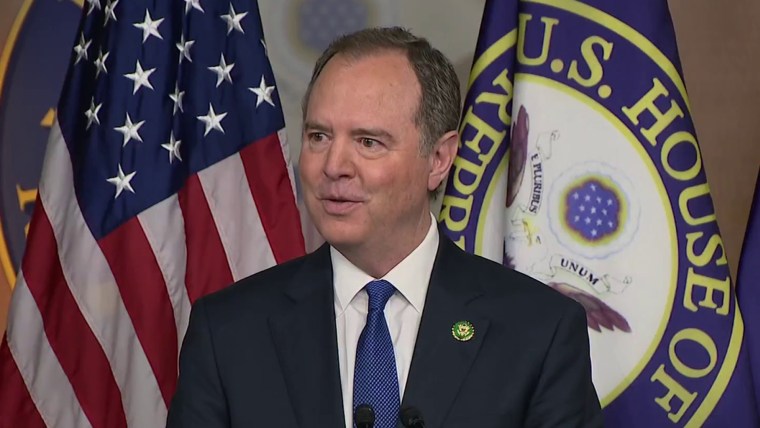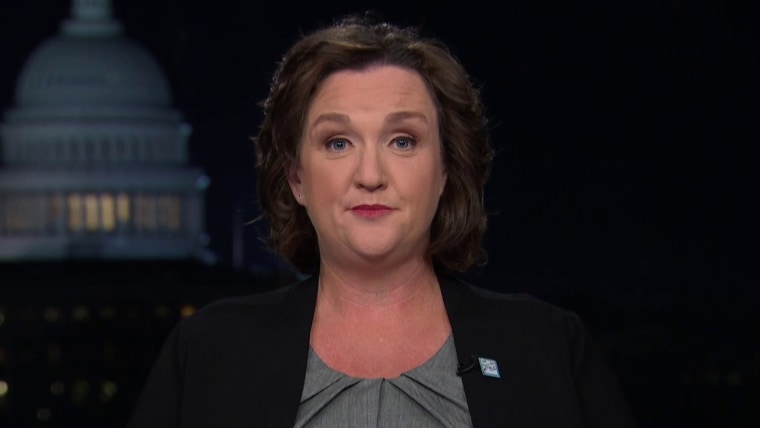[ad_1]
A Senate race pitting the man who spearheaded former President Donald Trump’s first impeachment, Adam Schiff, against fundraising powerhouse and wonk superstar Katie Porter would guarantee fireworks and a price tag in the hundreds of millions of dollars.
But add a candidate representing the Bernie Sanders wing of the party, Ro Khanna, and a living legend who got her start with the Black Panthers and would become the only Black woman in the Senate, Barbara Lee — now you’re talking about a California Senate race for the ages.
And Democrats are just getting started.
“For many years, a generation of leaders has stuck around, which has left all of these incredibly talented younger elected officials circling each other and waiting for the logjam to break,” said Dan Newman, a veteran California Democratic strategist. “It’s rare for a Senate seat to become available. And when it does, it’s the equivalent of a lifetime job for a Democrat.”
California is finally getting a wide-open Democratic primary that lives up to its progressive reputation, with at least four liberals gunning for the Senate seat long occupied by Dianne Feinstein — even though Feinstein, 86, hasn’t yet said whether she plans to retire.
It won’t be cheap. Reaching voters isn’t easy in California, with a population approaching 40 million and a land mass bigger than that of many countries.
But after having waited around for Democrats like Feinstein, former Sen. Barbara Boxer and former Gov. Jerry Brown to pass the reins, candidates are ready to break the bank.
“This very well could break records in terms of the amount spent, not only in California, but likely a national record in terms of an intraparty fight,” said Mike Trujillo, a Democratic strategist and vice president of the Los Angeles political firm Bryson Gillette. “If you’re selling ad time here in California, it’s going to be a very good time for you.”
Candidates have been advised they’ll need to raise at least $20 million to $40 million. Trujillo guessed the winning candidate may end up spending north of $100 million — a vast sum for a contest that will most likely have no bearing on Senate control, because California is almost certain to send a Democrat to Washington.
But the race will affect the future of the Democratic Party, both in California and beyond. Voters are likely to be asked to decide among candidates who, while largely agreeing on policy, represent different faces and approaches to Democratic politics.
With so much in common, campaigns are working hard to highlight contrasts in their candidates’ records, political styles and personalities, although it’s so far happening sub rosa or in veiled public critiques.
“If you want to show Californians that you’re a fighter, it means you might take a swing at one of your opponents just to show that you’re in the ring,” Trujillo said.
Porter was the first in, announcing two weeks ago and raising more than $1 million in her first day.
Porter, a protégée of Elizabeth Warren — her daughter is named after Warren, the senator from Massachusetts who was her law school professor — just won a tough re-election to her Orange County-based House seat, a contest that helped grow her national profile built on viral videos of her explaining policy or grilling witnesses during hearings.
Porter, a single mother and former law professor, has become a small-dollar fundraising powerhouse, having amassed more campaign money last year than any other House member except Speaker Kevin McCarthy, R-Calif.
Schiff, meanwhile, announced his campaign Thursday in a video highlighting his work investigating and impeaching Trump when he was chairman of the House Intelligence Committee. That work turned him into an anti-Trump hero, cable news fixture and bestselling author, earning all the right enemies on the right for Democratic primary voters, although he isn’t as associated with progressive policy as Porter.
The exposure helped Schiff build his own massive fundraising apparatus, which raised only slightly less money than Porter last year, even though he didn’t have a competitive re-election, making them the Nos. 1 and 2 House fundraisers, aside from top party leaders, according to the campaign finance tracking site Open Secrets.
Many analysts expect the race to come down to the head-to-head battle between Porter and Schiff, thanks to California’s unusual “jungle primary” system, in which candidates of all parties vie against one another in primaries and the top two vote-getters move on to the general election in November.
Not so fast, say supporters of Lee and Khanna.
They argue that California, the most diverse state in the contiguous U.S. — just 35% of Californians are non-Hispanic white — should elect a person of color, especially now that former Sen. Kamala Harris has been elevated to the vice presidency.
Sen. Alex Padilla became the state’s first Latino senator when he was appointed to replace Harris.
“There’s a reason there’s not a Black woman in the Senate right now, because of barriers to fundraising and institutional connections,” said Lee supporter Aimee Allison, the Oakland-based founder of She the People, a national group that works to elect women of color.
Lee, who worked with the Black Panthers as a college student in the 1970s, is an icon on the left for her decades of often lonely advocacy in Congress about abortion to civil rights to the Iraq War, which, supporters say, was vindicated by history.
Lee, the highest-ranking Black woman in the House, has privately told colleagues she plans to run, although her simplest path to the Senate would be if Feinstein retired early. Democratic Gov. Gavin Newsom pledged two years ago that he would appoint a Black woman to complete Feinstein’s term if she steps down, and Lee would be an obvious pick.
“An appointment would be a way to make sure that this country has the essential voice of a Black woman,” Allison said. “This is such a great opportunity for Sen. Feinstein to secure her legacy. And I don’t see and I don’t understand why it isn’t happening.”
Meanwhile, as Lee watches Feinstein, Bernieworld is watching Lee.
Sanders, I-Vt., easily won California in the 2020 Democratic presidential primary, beating President Joe Biden by 8 percentage points and Warren by 22 points.
Sanders has urged Khanna, the Silicon Valley congressman who toured the country and made frequent media appearances as a Sanders campaign co-chair, to join the Senate fray.
But Khanna admires Lee and wants to wait and see whether she chooses to make a serious run before he makes his own decision, said a source familiar with his thinking. His core team is based in California and he is looking to build out, but so far he hasn’t made any new hires.
Khanna and Porter, meanwhile, share unimpeachable liberal bona fides, but they represent different strains of progressivism, like Sanders and Warren, whose ideological alliance was strained by personal and stylistic differences during their presidential campaigns.
Khanna and Porter also have different geographic bases; Porter hails from Southern California, like Schiff, while Khanna represents the San Francisco Bay Area, like Lee.
Missing from the field with its abundance of Democrats, at least so far, are any Republicans or even independents like Rick Caruso, the billionaire who spent $104 million unsuccessfully running for mayor of Los Angeles.
Mark DiCamillo, the director of the Berkeley IGS Poll at the University of California, said he’s never seen a race like this one — but he is excited to see how the “blockbuster” plays out.
“I’ve been polling in California for over 40 years. What’s really unique is we have this wide-open race, where anyone can throw their name in and no Republicans jumping in. None whatsoever, yet,” he said. “That’s the dynamic of California right now. It’s a Democratic state, and most Republicans who run at the top of the ticket are just, I don’t know, sacrificial lambs.”
[ad_2]
Source link

